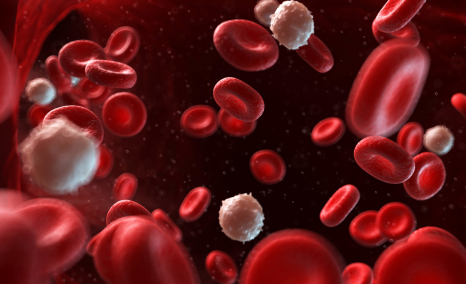A government representative defended the move, explaining that adjustments to AstraZeneca’s investment plan led to a lower grant offer. “All government grant funding must demonstrate value for the taxpayer, and despite extensive work, a solution was not possible,” the spokesperson said.
The decision comes as a blow to Chancellor Rachel Reeves, who recently emphasized the life sciences industry as a pillar of economic growth. In a speech earlier this week, she highlighted AstraZeneca’s role in the sector and announced plans to develop an Oxford-Cambridge growth corridor, which she projected could contribute £78 billion to the economy.
FDA Approves First Non-Opioid Pain Reliever JOURNAVX in over 20 Years
The FDA has approved JOURNAVX™ (suzetrigine), an oral, non-opioid pain signal inhibitor developed by Vertex Pharmaceuticals for the treatment of adults with moderate-to-severe acute pain. JOURNAVX selectively targets the NaV1.8 pain pathway, providing an effective alternative to opioids while demonstrating a favorable safety profile with no evidence of addictive potential. This approval marks a significant advancement in pain management, as it is the first new class of pain medication approved in over two decades.
With an estimated 80 million Americans prescribed medications for moderate-to-severe acute pain annually, the approval of JOURNAVX introduces a much-needed alternative in a landscape dominated by opioids. The drug’s ability to provide effective pain relief without the risks associated with opioid dependence could shift the standard of care for pain management. Vertex has also implemented patient support programs to ensure accessibility for those in need.
“This is an incredible day for patients and physicians alike who now have an approved non-opioid treatment that delivers effective acute pain relief and a favorable safety profile without addictive potential,” said Jessica Oswald, M.D., a pain medicine specialist. “JOURNAVX could redefine the management of pain and become a foundational treatment option where alternatives to opioids have been desperately needed.”
Axsome’s SYMBRAVO Wins FDA Nod for Migraine Treatment
Axsome Therapeutics announced that the FDA has approved SYMBRAVO (meloxicam and rizatriptan) for the acute treatment of migraine with or without aura in adults. SYMBRAVO introduces a novel, multi-mechanistic approach, targeting multiple pathways to rapidly alleviate migraine pain and provide sustained relief for up to 48 hours in some patients. The drug is expected to be commercially available in the U.S. within the next four months.
Clinical trials, including MOMENTUM and INTERCEPT, demonstrated SYMBRAVO’s effectiveness in treating mild to severe migraine pain while reducing the need for rescue medication. In a head-to-head comparison, it showed superiority over rizatriptan in providing sustained pain relief. The drug utilizes Axsome’s MoSEICTM rapid absorption technology, allowing for faster onset while maintaining a long half-life.
“A significant proportion of migraine patients experience inadequate efficacy with current treatments, leading to increased suffering and attack frequency,” said Dr. Richard B. Lipton, Professor of Neurology at Albert Einstein College of Medicine. “The approval of SYMBRAVO provides a much-needed new option for patients and clinicians, offering rapid and long-lasting relief.”
With migraine affecting over 39 million people in the U.S., SYMBRAVO represents a major advancement in acute migraine care. Axsome CEO Herriot Tabuteau, M.D., emphasized the company’s commitment to addressing CNS disorders, stating, “SYMBRAVO provides patients and clinicians with an important new option that can quickly stop a migraine attack and keep it away with just a single dose.”
March Biosciences’ MB-105 Gains FDA Orphan Drug Status for T-Cell Lymphoma
March Biosciences announced that the FDA has granted orphan drug designation to its first-in-class CD5-targeted CAR-T cell therapy, MB-105, for treating relapsed or refractory CD5-positive T-cell lymphoma.
“This designation is not only an important regulatory milestone but also underscores the urgent need for new treatment options for patients with T-cell lymphoma,” said Sarah Hein, Co-Founder and CEO of March Biosciences. “Current treatment options for patients with treatment-resistant T-cell cancers are limited, and the promising safety and efficacy signals observed in our Phase I trial validate our development strategy as we prepare to launch our Phase II clinical trial in early 2025.”
Orphan drug designation, granted to therapies targeting rare diseases affecting fewer than 200,000 people in the U.S., offers various incentives such as tax credits for clinical testing, fee exemptions, and seven years of market exclusivity upon FDA approval.
MB-105 is the lead program from March Bio’s collaboration with the Center for Cell and Gene Therapy and other renowned institutions. The company has secured $28.4 million in Series A funding to advance its Phase II trial and enhance its manufacturing capabilities for future commercialization.
FDA Accepts Saol Therapeutics’ NDA for SL1009 in Pyruvate Dehydrogenase Complex Deficiency
Saol Therapeutics, a clinical-stage pharmaceutical company, announced that the FDA has accepted the New Drug Application (NDA) for SL1009 (Sodium Dichloroacetate Oral Solution, DCA), intended for the treatment of Pyruvate Dehydrogenase Complex Deficiency (PDCD), a rare and life-threatening mitochondrial disorder affecting children. The FDA has granted Priority Review for the NDA, with a goal date of May 27, 2025, under the Prescription Drug User Fee Act (PDUFA). This designation highlights the potential for SL1009 to improve treatment options for this serious condition significantly.
“We are one step closer to addressing the critical challenges faced by children with PDCD, where no approved treatment currently exists,” said Dave Penake, CEO of Saol Therapeutics. “This NDA acceptance is a significant scientific achievement and a meaningful moment for everyone involved in advancing this therapy.”
SL1009, which targets Pyruvate Dehydrogenase Kinase (PDK) to stimulate Pyruvate Dehydrogenase Complex (PDC) activity and increase ATP production, has already received Orphan Drug, Fast Track, and Rare Pediatric Disease Designations from the FDA, with eligibility for a Priority Review Voucher (PRV).
The NDA submission is supported by data from Phase III studies, including a double-blind placebo-controlled cross-over study and a survival study, demonstrating the safety and clinical benefits of DCA in PDCD patients.



